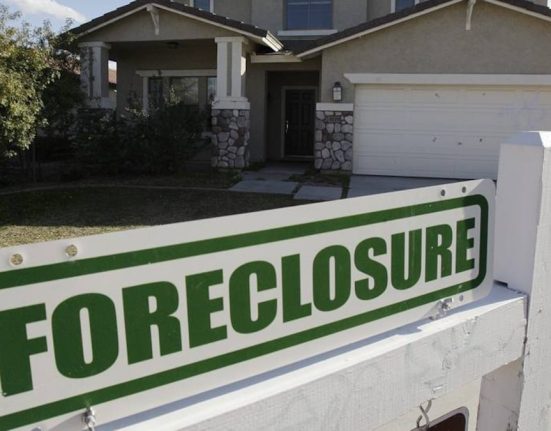
CHARLESTON — Eight natural gas-producing counties in West Virginia are receiving millions of dollars less in property tax collections this year due to a mistake by state tax officials, with one of the smallest counties in West Virginia down by nearly $16 million
The West Virginia Tax Division informed county assessors in eight counties in the Ohio Valley and North Central West Virginia late last year that a clerical error by a third-party vendor in calculating the new formula for natural gas property tax valuations caused newly producing natural gas wells to be undervalued.
According to information obtained this week from eight assessors in the affected counties, the sum of the total tax impact to these counties – adding the working interest value (operators) impact and the royalty interest value impact – was more than $30 million.
The eight counties effected were Brooke, Doddridge, Harrison, Marshall, Monongalia, Pleasants, Tyler, and Wetzel counties.
An attempt to seek the total tax impact through a Freedom of Information Act request to the Tax Division was denied, with attorneys for the Tax Division citing an internal memoranda exemption in a Jan. 11 letter. They also cited confidentiality restrictions for certain property tax information.
Some counties reporting their sum total tax impacts were affected less than others. Marshall County’s sum total tax impact was $5.3 million. Brooke County’s sum total tax impact was $4.4 million. The sum total tax impact for Monongalia and Wetzel counties was $1.6 million each, and Doddridge County’s was more than $1 million. Harrison County’s total tax impact was $275,879, while Pleasants County’s was only $110,277.
“We were pretty fortunate here in Pleasants County,” said Pleasants County Assessor Vickie Gorrell. “It only affected us slightly because we only had four new wells.”
Of the eight counties that provided this information, Tyler County was most affected with 65 new wells beginning production in 2021, for a sum of total tax impact of more than $15.8 million.
“We were not notified of this clerical error until September,” said Tyler County Assessor Lisa Jackson Thursday. “We had no idea that this happened.”
An official with the Governor’s Office who spoke on background Jan. 10 confirmed that a mistake was made by the Tax Division and an unidentified third-party vendor. In an official statement that same day, Emily Kramer, the assistant deputy commissioner of taxpayer engagement for the Tax Division, provided further comment.
According to Kramer, the “clerical error” was first identified by the Division of Regulatory and Fiscal Affairs within the Legislative Auditor’s Office.
“This review revealed a clerical error that impacted wells that began production in 2021 and resulted in real and personal property interest related to these wells to be undervalued,” Kramer said. “… This is a relatively small portion of the parcels that were valued under the new statutory scheme provided in House Bill 4336 in the 2022 regular legislative session.”
Officials in the Governor’s Office had confirmed last July that the Legislative Auditor’s Office was looking into implementation of a natural gas property tax valuation formula required by the passage of House Bill 4336 in 2022. The new formula began with tax year 2023. A legislative spokesperson said that due to being provided proprietary data in relation to the values, the Division of Regulatory and Fiscal Affairs was unable to share details of its review at this time.
House Bill 2581 in 2021 and HB 4336 in 2022 created a revised methodology to value oil and natural gas properties using the fair market value based on a yield capitalization model. This was after the West Virginia Supreme Court of Appeals found in 2019 that the Tax Division (formerly called the State Tax Department) was using a methodology for calculating natural gas property tax valuations inconsistent with the state Constitution.
The formulation takes into account several factors, including whether a well is horizontal or vertical, the geographic location of the well, whether the well is located in certain shale regions and the age of the well. Information is supplied to the Tax Division by the producer/operator along with the actual royalty paid to a royalty owner. While the previous formula looked back using a three-year average, the new formula looks back over only the previous tax year.
Both HBs 2581 and 4336 were opposed by lawmakers in natural gas-producing counties, concerned that the new formulation would adversely hurt county and school system budgets. House Judiciary Committee Vice Chairman David Kelly, R-Tyler, said the Legislature might have to step in this session.
“I’m very troubled by this,” Kelly said Thursday. “I think it has got to be addressed, and addressed very quickly. This affects several counties, but it really affects Tyler County to the tune of $15.8 million. We have to take a look at it quickly and have to figure a pathway forward.”
“We also have supported legislation regarding the valuation of minerals that will potentially ease the burden on the (Tax Division) and hopefully avoid this type of error in the future,” said Wetzel County Assessor Scott Lemley. “Additionally, we have recommended and supported legislation during the 2024 legislative session that, if passed, would permit taxpayers to pay their back taxes incurred as a result of the state’s error over a three-year period.”
The implementation of the new formula by the Tax Division at the end of 2022 and into 2023 has been wracked by problems: delays in providing counties with valuation numbers, understaffing within the Tax Division, incorrect appraisal value numbers causing trigger letters going out to taxpayers causing confusion and anger, and a backlog in tax assessment appeals at the state level.
The Tax Division said it was working to provide relief to counties for the erroneous assessments, but counties would not be made whole – if at all – until next tax year. State Code 11-3-17 creates a mechanism for making changes to property tax assessments.
According to law, the Tax Commissioner – working on behalf of counties claiming to be aggrieved by entries into property books resulting from clerical errors and unintentional mistakes – may apply for relief within one year of the tax books being delivered to assessors or one year from the time the mistake was discovered, which sources said was March 2023.
When the applicant is the state, an order certified to the sheriff would include the correct amount of taxes due to the state and county and allow for collection of those corrected taxes. But county assessors said the Tax Division has yet to reach out and explain exactly how
“We have not figured out how we are to do the corrections. That is still up in the air,” Gorrell said.
“The state hasn’t given us any official indication of how they are going to handle this or how we’re supposed to handle this,” Jackson said.
“It’s just unfortunate,” Jackson continued. “We have to be able to figure something out. Until they tell us what to do, we’re just at a standstill.”
(Adams can be contacted at sadams@newsandsentinel.com)







